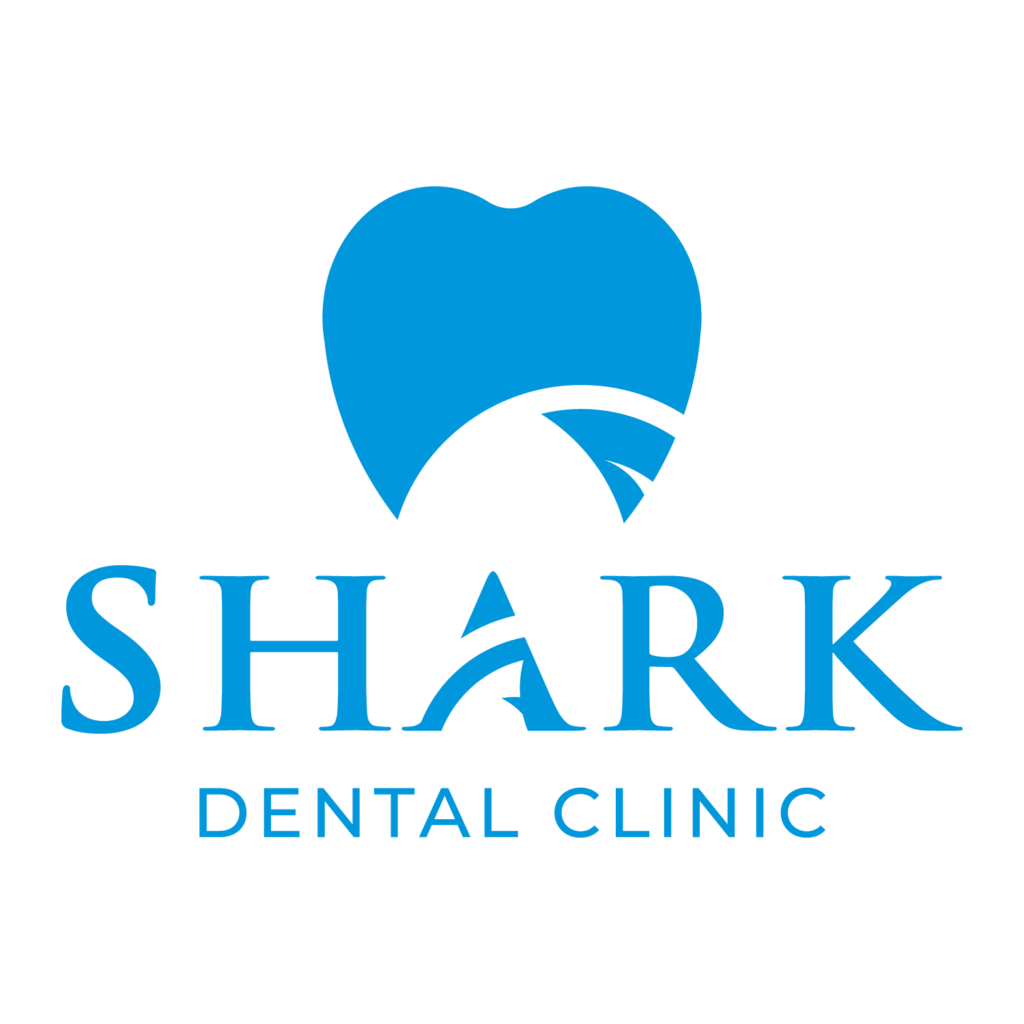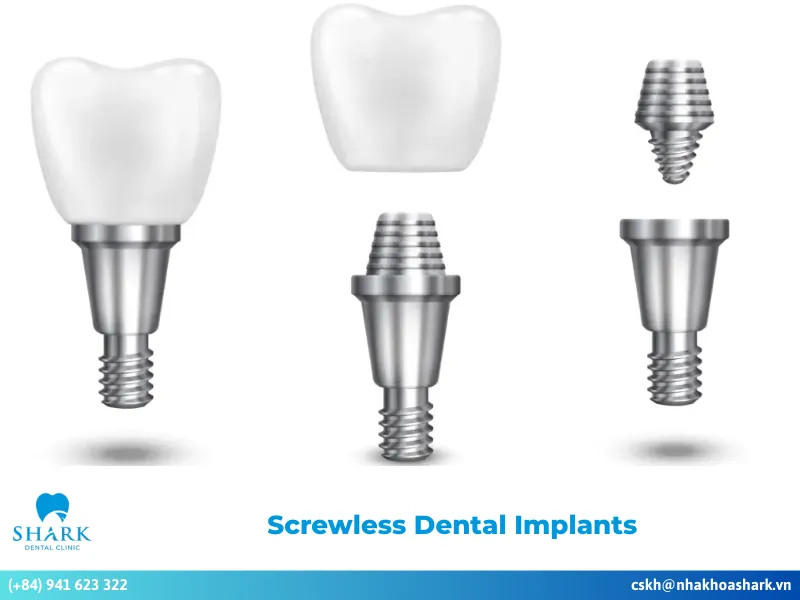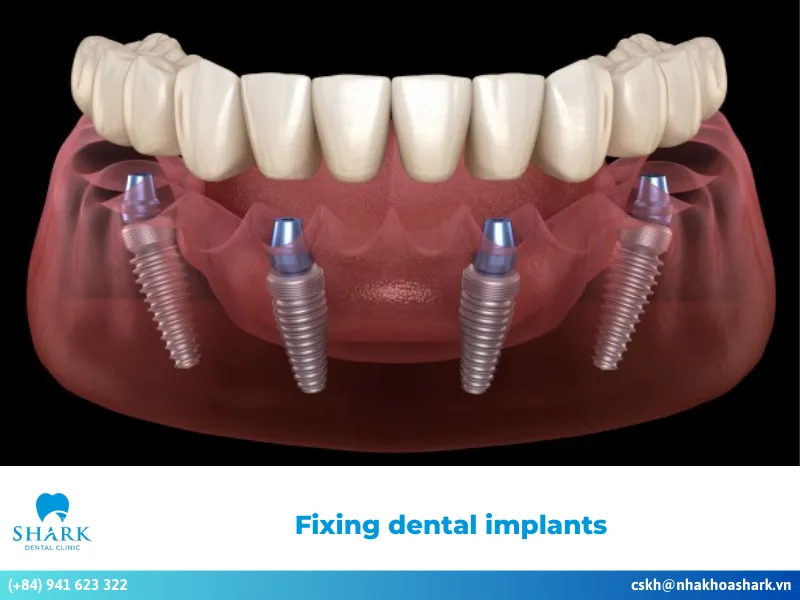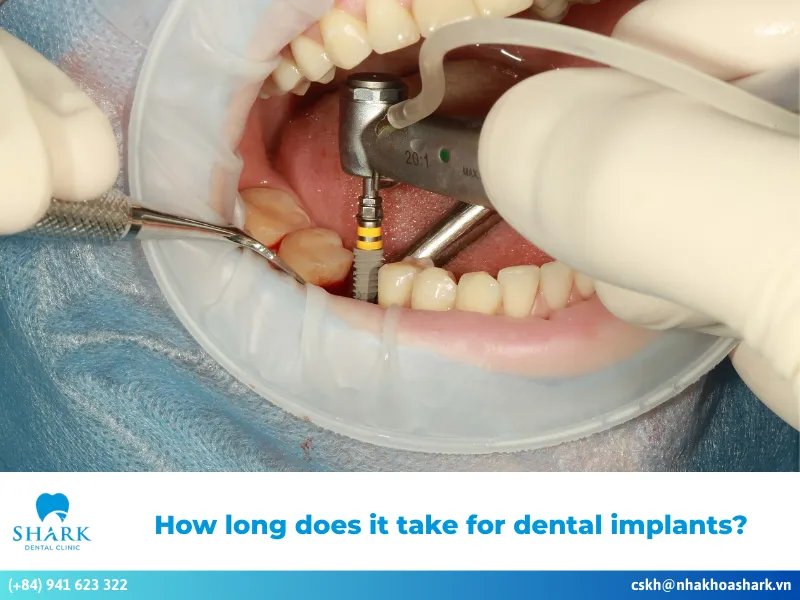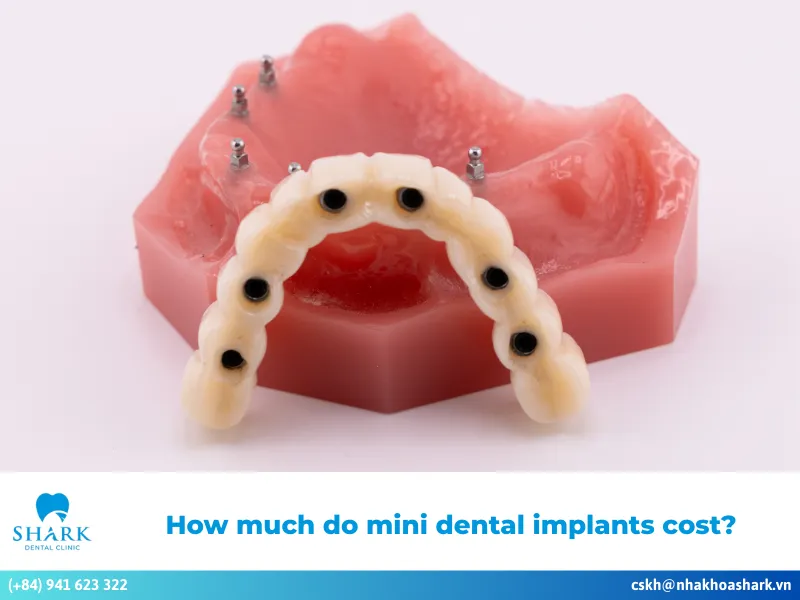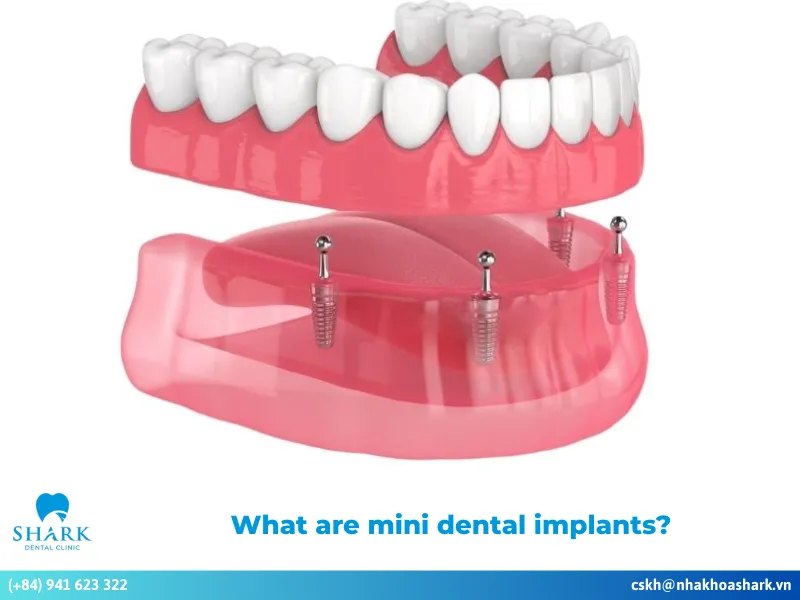Dental implants are a popular choice for restoring missing teeth or teeth with reduced function. They help restore both chewing ability and aesthetics. However, not everyone is suitable for implants due to certain health conditions, age, or other factors. Below, we will discuss who should not get dental implants and present effective alternative solutions for tooth replacement.
Cases where dental implants are not recommended
While dental implants are an effective method for restoring teeth, there are specific cases where they are not recommended:
- 1. Children under 18 years old
- 2. Pregnant women
- 3. People with chronic diseases
- 4. People with mental health disorders
- 5. Long-term smokers
- 6. People with jawbone issues
Children under 18 years old
Research from the National Institutes of Health (NIH) shows that children under 18 are not suitable candidates for dental implants. At this developmental stage, the jawbone has not fully matured in terms of structure and tooth shape. Low bone density and insufficient stability may result in the implant not being securely anchored.
If children receive dental implants while their jaw structure is still unstable, there is a risk of the implant loosening, which can negatively impact their long-term oral health. In such cases, alternatives like dental bridges or space maintainers may be more appropriate.

Pregnant women
Pregnant women are advised to avoid dental implant procedures. The process of implant placement is complex and may require additional procedures, such as X-rays, to assess jawbone density and oral health. These interventions can pose risks to fetal development.
Additionally, after dental implant surgery, patients are typically prescribed painkillers and antibiotics to manage discomfort and prevent infection. These medications could potentially affect the fetus, particularly during the first trimester.
People with chronic diseases
Individuals with chronic conditions like high blood pressure, diabetes, or cardiovascular diseases should exercise caution with dental implants for several reasons:
- Patients with high blood pressure (over 150/90 mmHg) face a higher risk of bleeding and complications during minor surgical procedures.
- Those with blood glucose levels above 10 mmol/L may experience delayed healing post-implant placement, alongside a higher risk of infection compared to healthy individuals.
In summary, dental implants should only be considered for patients in stable health without uncontrolled diabetes, hypertension, or heart disease. A thorough consultation with a qualified dentist is essential before proceeding.

People with mental health disorders
Individuals suffering from mental or neurological disorders are generally not recommended for dental implants. This group may struggle with cooperating with dentists, following instructions, or adhering to post-operative care. Such challenges can increase the risks of implant instability, infection, and damage to gum tissue.
Long-term smokers
Long-term smokers are affected by nicotine and other harmful substances in cigarettes. Nicotine causes blood vessels to constrict, which reduces blood and oxygen flow to tissues, ultimately slowing the healing process after implant surgery. This also increases the risk of infection, swelling, and pain.
A study published in “Medicina” found that long-term smokers have a 140.2% higher risk of dental implant failure compared to non-smokers. Smoking makes it difficult for the implant to integrate with the jawbone, diminishes the lifespan of the implant, and compromises aesthetic outcomes.
People with jawbone issues
A critical requirement for dental implants is having a stable jawbone. If you have a weak jawbone structure or insufficient bone density, the implant may not integrate properly with the jaw, making dental implant placement unsuitable.
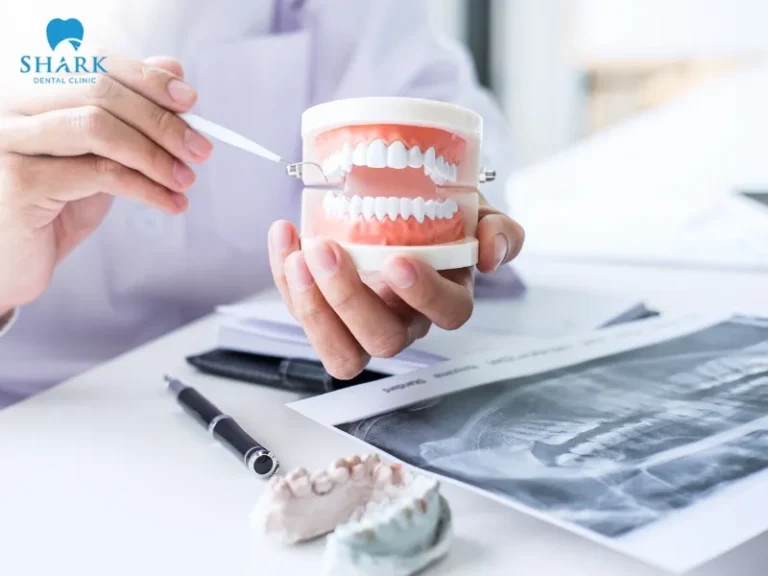
Alternatives for those who cannot get dental implants
If you belong to the cases where you cannot get dental implants, you can consider the following alternative solutions:
Removable dentures with porcelain teeth
For patients who have lost all their teeth or cannot undergo dental implants, removable dentures are an effective alternative. This method restores chewing function and provides an aesthetic appearance while allowing for easy daily oral hygiene.
However, it is important to follow your dentist’s instructions on how to wear and remove the dentures. Improper care can lead to gum inflammation and reduce the effectiveness of dental restoration. In some cases, dentures may become loose or may fall out during chewing or speaking.
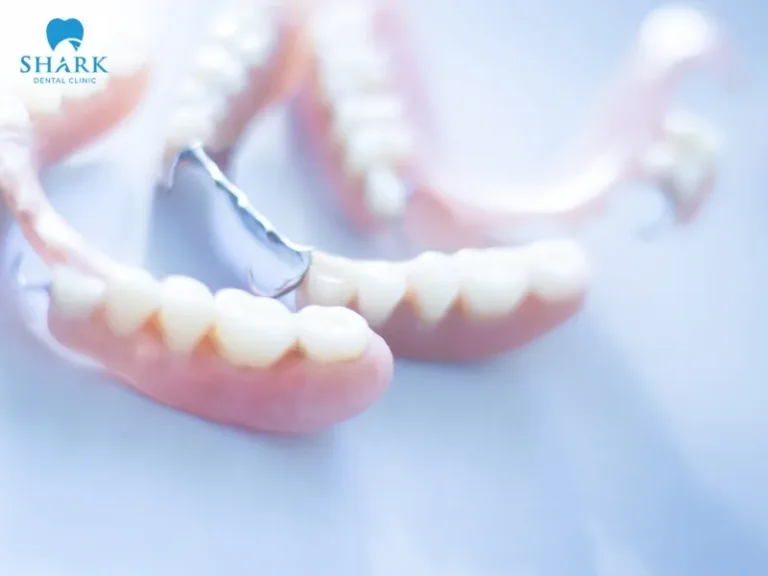
Porcelain bridgework
Porcelain bridges are another commonly used alternative for replacing missing teeth when implants are not feasible. This method involves using two abutment teeth to support a bridge of porcelain teeth, thus restoring both aesthetics and chewing function.
Porcelain bridges are suitable for patients who are missing one or a few teeth and have good oral health with a stable jawbone structure. However, disadvantages include a shorter lifespan compared to implants and the inability to prevent jawbone loss over time.
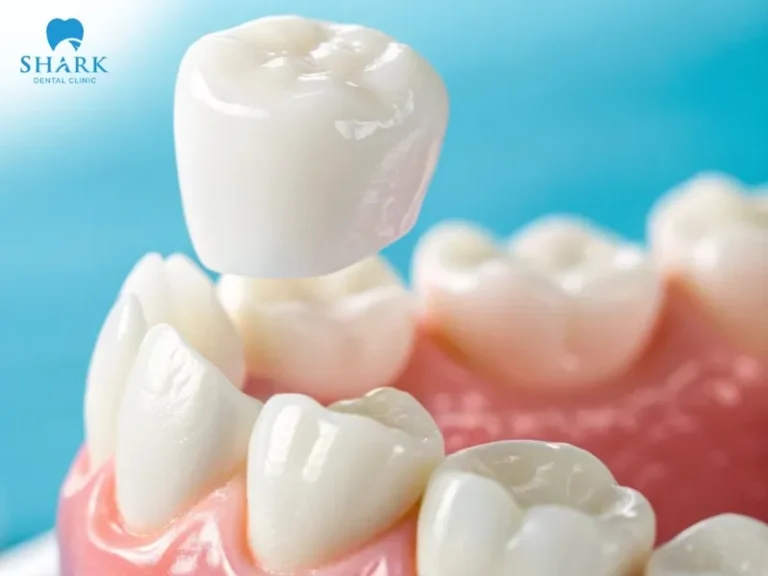
Where to get safe and effective dental implants
Shark Dental Clinic is a reputable dental implant in Vietnam, chosen by many patients. Here are several reasons to consider Shark Dental Clinic for your dental implant procedures:
- Highly Skilled Dental Team: All dentists at Shark Dental Clinic are top specialists in oral and maxillofacial dentistry, having graduated from prestigious medical universities. They possess years of experience, have trained abroad, and have successfully performed numerous complex dental implant cases.
- Modern Facilities and Advanced Equipment: Shark Dental Clinic invests in state-of-the-art infrastructure, machinery, and equipment. Dental devices are imported from Europe, including 3D Cone Beam CT scanners and Panorex X-ray machines, which support accurate diagnoses of oral conditions, ensuring smooth and precise implant procedures.

- Authentic Implant Posts: Patients at Shark Dental Clinic have the option to choose from high-quality implant brands such as Biocare, Osstem, Dentium, and Straumann. These implants offer optimal restoration results while minimizing the risk of post-implant rejection.
- Standards-Compliant Procedures: Every implant procedure at Shark Dental Clinic follows current dental standards. Each patient undergoes a thorough oral examination and professional cleaning before the placement of the implant and the attachment of the crown.
- Transparent Costs and Information: Shark Dental Clinic clearly discloses all costs before the procedure to ensure there are no unexpected charges. The clinic often offers loyalty programs, discounts, and promotions, helping patients reduce their financial burden during dental implant treatment.

This article provides detailed information about who should not get dental implants, alternative restoration options, and reliable implant clinics. We hope this knowledge helps you better understand suitable candidates for dental implants and guides you toward achieving a healthy, radiant smile.


